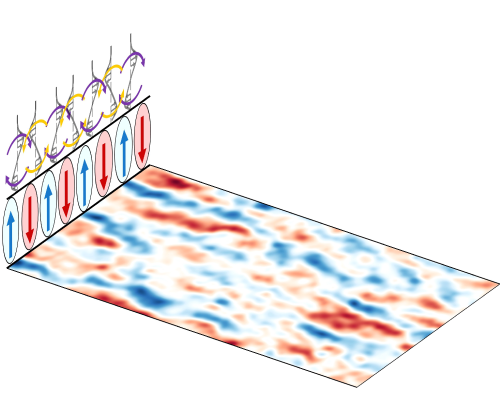Refine listing
Actions for selected content:
1419572 results in Open Access
Unpacking conceptual idolatry
-
- Journal:
- Religious Studies , First View
- Published online by Cambridge University Press:
- 11 July 2025, pp. 1-15
-
- Article
-
- You have access
- Open access
- HTML
- Export citation
Marked Cox models for IBNR claims count: continuous and discretized approaches with Dirichlet-driven reporting delays
-
- Journal:
- ASTIN Bulletin: The Journal of the IAA , First View
- Published online by Cambridge University Press:
- 11 July 2025, pp. 1-29
-
- Article
-
- You have access
- Open access
- HTML
- Export citation
Between ideology and self-interest: exploring variations in public support for basic income schemes in Germany
-
- Journal:
- Journal of Social Policy , First View
- Published online by Cambridge University Press:
- 11 July 2025, pp. 1-21
-
- Article
-
- You have access
- Open access
- HTML
- Export citation
Dynamic characteristics and stability analysis of multi-body aircraft deployment process based on bifurcation theory
-
- Journal:
- The Aeronautical Journal / Volume 129 / Issue 1340 / October 2025
- Published online by Cambridge University Press:
- 11 July 2025, pp. 2938-2967
-
- Article
- Export citation
A young patient with atrial fibrillation, renal infarction, and acute cerebellar infarction: aortic coarctation associated with secondary hypertension
-
- Journal:
- Cardiology in the Young / Volume 35 / Issue 7 / July 2025
- Published online by Cambridge University Press:
- 11 July 2025, pp. 1507-1509
-
- Article
-
- You have access
- Open access
- HTML
- Export citation
(De)colonization of European museums: Five minimum standards for reenergizing postcolonial practices
-
- Journal:
- International Journal of Cultural Property / Volume 32 / Issue 1 / February 2025
- Published online by Cambridge University Press:
- 11 July 2025, pp. 5-30
-
- Article
-
- You have access
- Open access
- HTML
- Export citation
Turbulence-resolving integral simulations for wall-bounded flows
- Part of
-
- Journal:
- Journal of Fluid Mechanics / Volume 1014 / 10 July 2025
- Published online by Cambridge University Press:
- 11 July 2025, A40
-
- Article
-
- You have access
- Open access
- HTML
- Export citation
Slavery and Freedom in Black Thought in the Early Spanish Atlantic. By Chloe L. Ireton. Cambridge: Cambridge University Press, 2024. Pp 301. $35.99 Cloth.
-
- Journal:
- The Americas , First View
- Published online by Cambridge University Press:
- 11 July 2025, pp. 1-3
-
- Article
- Export citation
Distribution of REE and carbon in apatite of fish debris in REE-rich deep-sea mud from the Minami-Torishima area, southeastern Japan
-
- Journal:
- Mineralogical Magazine / Accepted manuscript
- Published online by Cambridge University Press:
- 11 July 2025, pp. 1-30
-
- Article
-
- You have access
- Export citation
Politics Of and Through the Thoroughfare - Roadblock Politics: The Origins of Violence in Central Africa Peer Schouten. Cambridge: Cambridge University Press, 2022. Pp. 299. $33.95, paperback (ISBN: 9781108713818); ebook (ISBN: 9781108625050).
-
- Journal:
- The Journal of African History / Volume 66 / 2025
- Published online by Cambridge University Press:
- 11 July 2025, e6
-
- Article
- Export citation
Large Fires and the Rise of Fire Insurance in Early Twentieth-Century Japan
-
- Journal:
- The Journal of Economic History / Volume 85 / Issue 3 / September 2025
- Published online by Cambridge University Press:
- 11 July 2025, pp. 701-729
- Print publication:
- September 2025
-
- Article
-
- You have access
- Open access
- HTML
- Export citation
Narratives in the nascent policy subsystem of AI biometrics
-
- Journal:
- Politics and the Life Sciences , First View
- Published online by Cambridge University Press:
- 11 July 2025, pp. 1-19
-
- Article
-
- You have access
- Open access
- HTML
- Export citation
The Work of ‘Outsiders’: Conflicting Concepts of Prison Labour in the West German Democracy, 1950–1970
- Part of
-
- Journal:
- Contemporary European History , First View
- Published online by Cambridge University Press:
- 11 July 2025, pp. 1-17
-
- Article
-
- You have access
- Open access
- HTML
- Export citation
A review on advancement in strategies for low-NOx hydrogen combustion with micromix technology
-
- Journal:
- The Aeronautical Journal / Volume 129 / Issue 1341 / November 2025
- Published online by Cambridge University Press:
- 11 July 2025, pp. 3252-3304
-
- Article
- Export citation
A new species of Kalicephalus (Nematoda: Diaphanocephalidae), a parasite of Bothrops atrox (Serpentes: Viperidae) from the Brazilian Amazon
-
- Journal:
- Journal of Helminthology / Volume 99 / 2025
- Published online by Cambridge University Press:
- 11 July 2025, e76
-
- Article
- Export citation
On the nature and distribution of mineral-forming ions: A mineral informatics approach: Hallimond Lecture
- Part of
-
- Journal:
- Mineralogical Magazine , FirstView
- Published online by Cambridge University Press:
- 11 July 2025, pp. 1-15
-
- Article
-
- You have access
- HTML
- Export citation
Do we need novel treatments for anorexia nervosa? A patient perspective
-
- Journal:
- The British Journal of Psychiatry / Volume 227 / Issue 6 / December 2025
- Published online by Cambridge University Press:
- 11 July 2025, pp. 880-884
- Print publication:
- December 2025
-
- Article
- Export citation
Tilting of vortex rings in the oblique collision reduces the longitudinal quadrupole and octupole modes of aerodynamic sound
-
- Journal:
- Journal of Fluid Mechanics / Volume 1015 / 25 July 2025
- Published online by Cambridge University Press:
- 11 July 2025, A1
-
- Article
- Export citation








